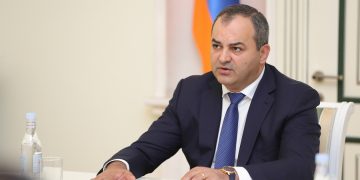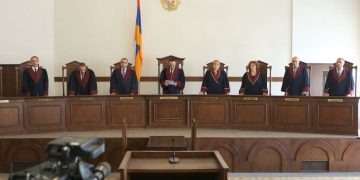A few days ago, the Prosecutor General of Armenia Arthur Davtyan, in an interview with the media, announced: “Nevertheless, until now, I am not aware of any fact that anyone has been recognized a political prisoner [TN: in Armenia] by any international organization in accordance with international law”. However, such an international organization not only exists it has also sent a letter to the Prosecutor General about a political prisoner.
Particularly, on January 8, 2016, the world-famous human rights organization Human Rights Watch sent a letter to Armenia’s Prosecutor General Gevorg Kostanyan, calling on the prosecutor’s office to take steps to protect Gevorg Safaryan’s rights. The human rights organization pointed out Safaryan’s unjustified detention and the unacceptability of the unfounded persecution upon him.
Why does the EU remain silent?
However, as it is known, the European Union, which is the main focal point of democracy dissemination in the region, has never publicly announced about political prisoners in Armenia (unlike in Azerbaijan, Ukraine, and Russia).
The point is, that in order for the European Union to consider a person a political prisoner, the European Court of Human Rights’s decision to recognize the person as a political prisoner is required. Meanwhile, that decision in fact lies in the recording of the violation of Article 18 of the European Convention on Human Rights by ECHR.
In the history of the ECHR, only five violations of Article 18 were recorded: Tymeshenko and Lutenko in Ukraine; Gusinsky in Russia; Cheboryt in Moldova, and Mammadov in Azerbaijan. Concerning Andreas Ghukasyan’s case, in April 2018, the ECHR proceeded with the application of Article18, but no decision has yet been made (and Ghukasyan has already been released).
The ECHR is a rather slow-running structure where usually cases are examined only after the domestic courts have exhausted themselves. Sometimes it lasts for more than 10 years.
This is the reason why European structures still remain silent about the political prisoners in Armenia, which was often interpreted by the Prosecutor General and the former authorities as a “denial of the existence of political prisoners in Armenia by the EU”, which, however, does not correspond to reality, since not talking about political prisoners does not mean denying their existence.

 FACTOMETER
FACTOMETER











